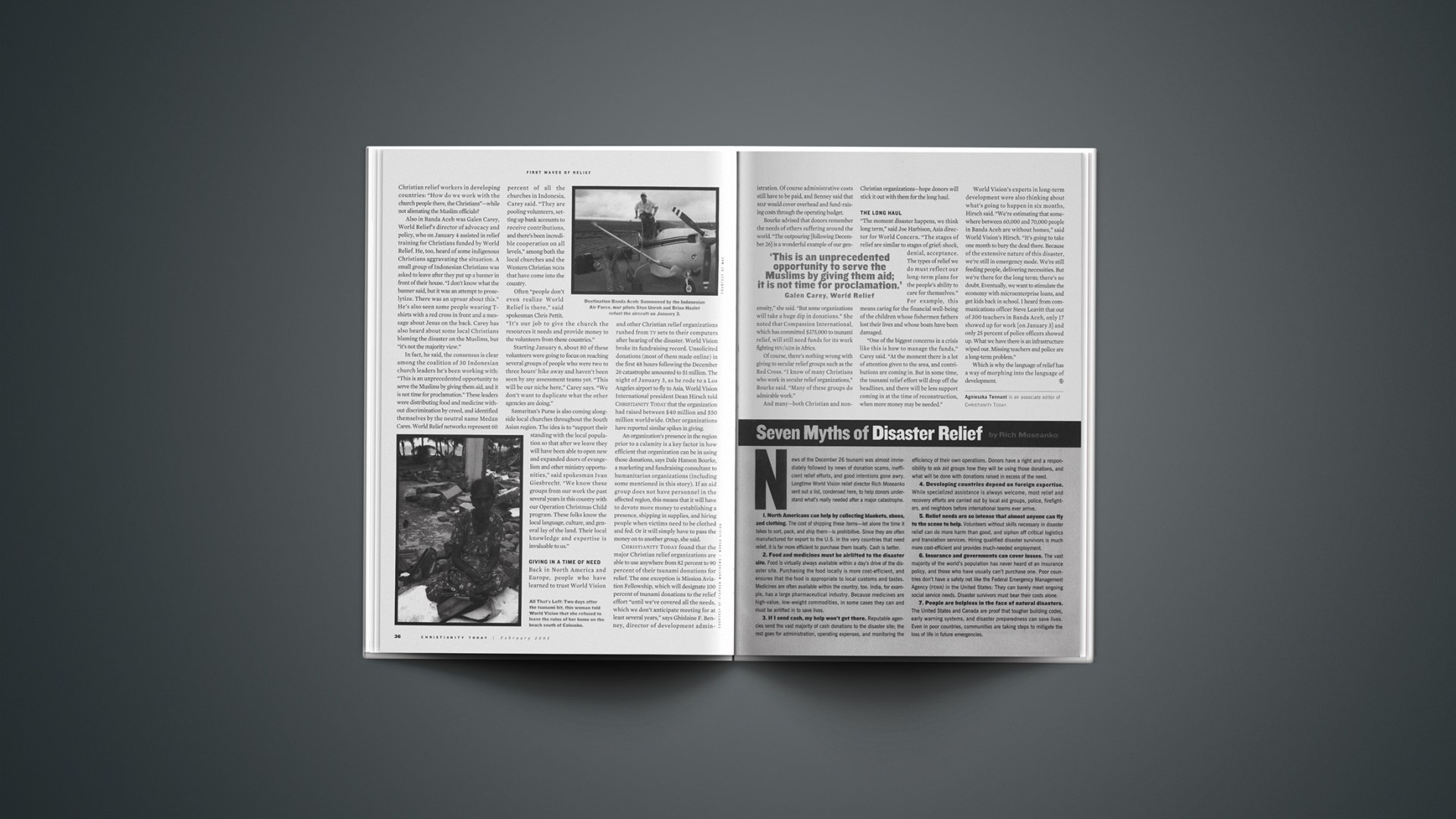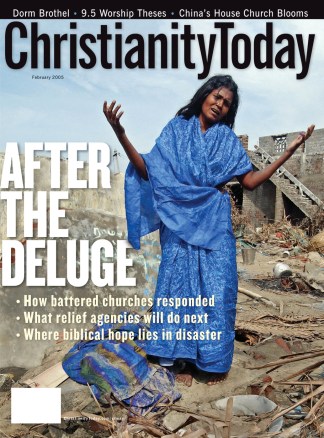News of the December 26 tsunami was almost immediately followed by news of donation scams, inefficient relief efforts, and good intentions gone awry. Longtime World Vision relief director Rich Moseanko sent out a list, condensed here, to help donors understand what’s really needed after a major catastrophe.
1. Americans can help by collecting blankets, shoes, and clothing. The cost of shipping these items—let alone the time it takes to sort, pack, and ship them—is prohibitive. Since they are often manufactured for export to the U.S. in the very countries that need relief, it is far more efficient to purchase them locally. Cash is better.
2. Food and medicines must be airlifted to the disaster site. Food is virtually always available within a day’s drive of the disaster site. Purchasing the food locally is more cost-efficient, and ensures that the food is appropriate to local customs and tastes. Medicines are often available within the country, too. India, for example, has a large pharmaceutical industry. Because medicines are high-value, low-weight commodities, in some cases they can and must be airlifted in to save lives.
3. If I send cash, my help won’t get there. Reputable agencies send the vast majority of cash donations to the disaster site; the rest goes for administration, operating expenses, and monitoring the efficiency of their own operations. Donors have a right and a responsibility to ask aid groups how they will be using those donations, and what will be done with donations raised in excess of the need.
4. Developing countries depend on foreign expertise. While specialized assistance is always welcome, most relief and recovery efforts are carried out by local aid groups, police, firefighters, and neighbors before international teams ever arrive.
5. Relief needs are so intense that almost anyone can fly to the scene to help. Volunteers without skills necessary in disaster relief can do more harm than good, and siphon off critical logistics and translation services. Hiring qualified disaster survivors is much more cost-efficient and provides much-needed employment.
6. Insurance and governments can cover losses. The vast majority of the world’s population has never heard of an insurance policy, and those who have usually can’t purchase one. Poor countries don’t have a safety net like the Federal Emergency Management Agency (fema) in the United States: They can barely meet ongoing social service needs. Disaster survivors must bear their costs alone.
7. People are helpless in the face of natural disasters. The United States and Canada are proof that tougher building codes, early warning systems, and disaster preparedness can save lives. Even in poor countries, communities are taking steps to mitigate the loss of life in future emergencies.
Copyright © 2005 Christianity Today. Click for reprint information.










